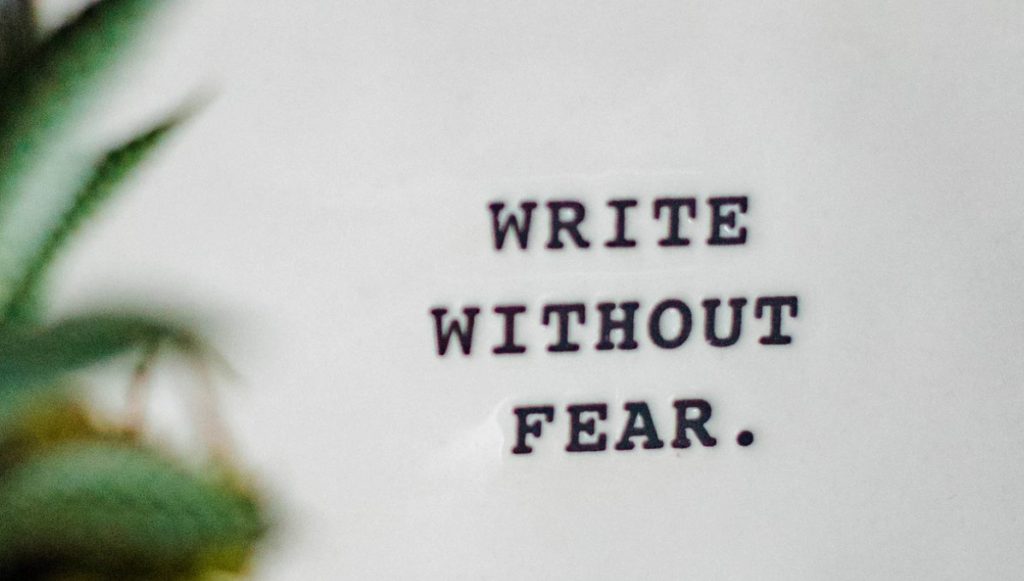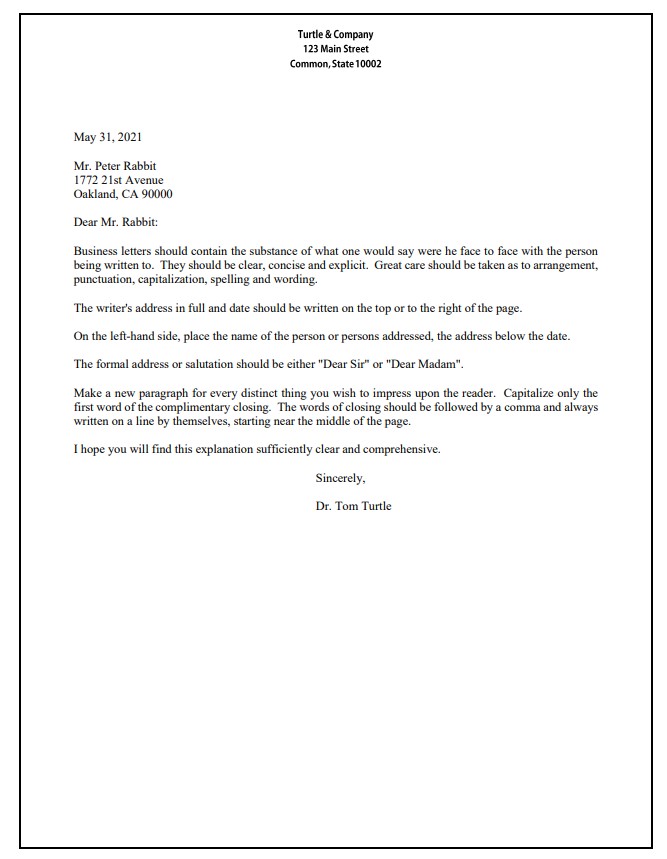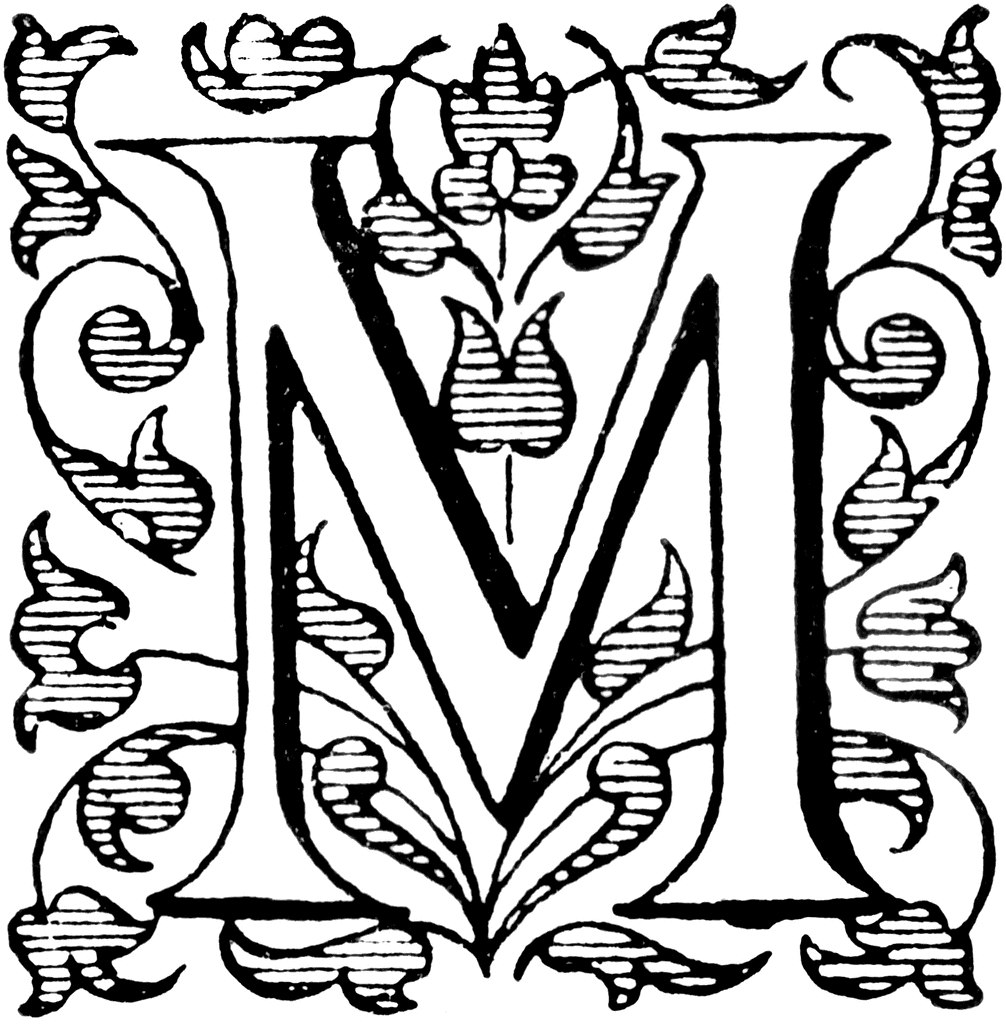
Although the basics of creating a business letter are fairly straightforward, it is sometimes illusive for those who don’t create them often. First, we’ll discuss some of the primary components to creating a business letter.
The desirable qualities for every effective letter are:
1. Brevity
2. Clarity
3. Unity
4. Preciseness
5. Personality
6. Courtesy
The chief consideration in brevity is that you should desire quality rather than quantity. This means you should avoid unnecessary words; long, rambling sentences; and unrelated subjects. It consists in talking direct and to the point.
Of course, it is not desirable to become so brief and abrupt in writing your letter that it will seem discourteous. Abruptness is as serious a defect in a letter as long, complex-compound sentences. Proper attention to the opening and closing sentences will redeem even the briefest letter from conveying an impression of curtness.
An effective letter will be sufficiently comprehensive to include all necessary information and yet so brief as to exclude everything not directly relating to the subject of the letter. Say just enough – no more and no less.

Clearness in writing demands clearness in thinking. You cannot write clearly upon a subject unless you have given it thoughtful consideration. Your designing room in the Department of Imagination must be free from obstruction and filled with the bright sunshine of concepts that are the results of positive knowledge. It is impossible to write concerning things about which you know little or nothing.
Your first duty is to get complete information regarding your subject. Second, sketch out in rough draft the ideas you wish to present. Third, take this undeveloped material through a polishing process. Work out the details. Fill in a sentence here; omit a word there; transpose a clause; change a modifier; and so on until you have a finished product – clear and comprehensive, which will stand out like an architect’s drawing or a painter’s design.
Always keep in mind the effect and influence of your words on the reader. Remember, what may seem perfectly clear to you on account of your familiarity with the subject, is not necessarily clear to others. Examine your words carefully to see whether they may be given another meaning than the one you intend. This will often save much trouble and annoyance.

Unity means one thing at a time and only one subject or proposition to a letter. If you have more than one subject or more than one proposition to present to a firm or client, it is better to place them in separate letters. Often different men will consider the different items and it will greatly aid in the handling of your business if you have for each different man a separate letter with just the material in it that he should consider.
All personal matters should be eliminated from business letters. Many a business letter has been robbed of its effectiveness because a writer attempted to say something amusing. So-called cleverness is another detrimental thing in Business Letter Writing. Once the reader gets the impression that the writer is clever, his mind is thrown from the serious consideration of the subject matter to the peculiarities of the writer’s style. When he has finished reading, he has lost the business point and only retains in his mind some little oddity ore amusing thought. Nothing makes a business letter so effective as plain, sober, straight-forward words and sentences.

Preciseness in writing calls for definiteness in thinking. You can not successfully write about one thing and think about another. Determine precisely what you want to write about and then select words that cannot have double meaning. The habit of clearly visualizing everything will do much for exactness in writing.
Preciseness means attention to details. See that your letter is correctly dated; that the recipient’s name is correctly spells; that the city, state, and street number or rural route are properly written, and that your own name and address is on the letter and envelope. If you enclose money, a check, money order or stamps, it should be mentioned; the amount should be named; and it’s purpose specifically indicated. In ordering goods, care should be taken that the correct amount is written and the catalog number given. In fact, every letter should be complete in itself and all its details accurately stated.

What is Personality? Someone has said personality is an attractive influence which an individual exercises over those about him and is the result of a high development of the positive forces and faculties of the body, mind and spirit. If this is true of a person then it applies with equal force to a letter.
Giving your letter personality is expressing yourself in your own individual way. It consists of freeing your work from that machine-like sameness which tradition has placed upon letter writing. It is giving human interest a chance. Why is humanity so interesting? Because while all are the same there are no two alike. This seeming contradiction is both the joy and confusion of all students of human nature.
Now, if you wish to give your letters personality, you must write them the same as other people yet different. Personality in letters gives a person-to-person attitude and a chance for originality of thought and expression. A letter with personality stands out from its machine-like companions as a big man in a crowd. Its personal touch, its honest ring, its sincere tone creates confidence and unties wallet strings where the custom-made letter goes into the waste basket.

Courtesy gives to a letter what fragrance gives to the rose. It is like frosting on the cake. It is a covering – an atmosphere – with a power, though intangible, that is none the less real and effective. You must have courteous feelings before you can give to your letter courteous expressions.
Nothing pays large dividends in business as courtesy. Few things have sent so many people “on the rocks” as discourtesy. Discourtesy is that grouchy spirit which shows no inclination to be accommodating; or which grudgingly grants a request. No man can climb very high on the ladder of business success unless he is filled to overflowing with a spirit to serve his fellow human because of a love to serve. This spirit when it finds expression is called courtesy,
Courtesy should not be mistaken for fawning or fulsome flattery. The imitation is just as detrimental as the genuine is helpful. It is the true, the real, the genuine courtesy that makes letters effective – a power to win customers, build business and develop prestige.

60


